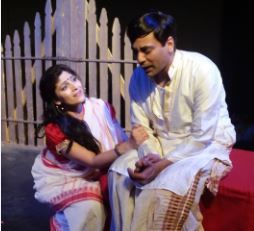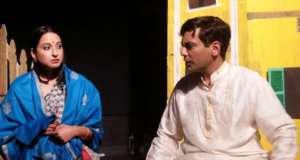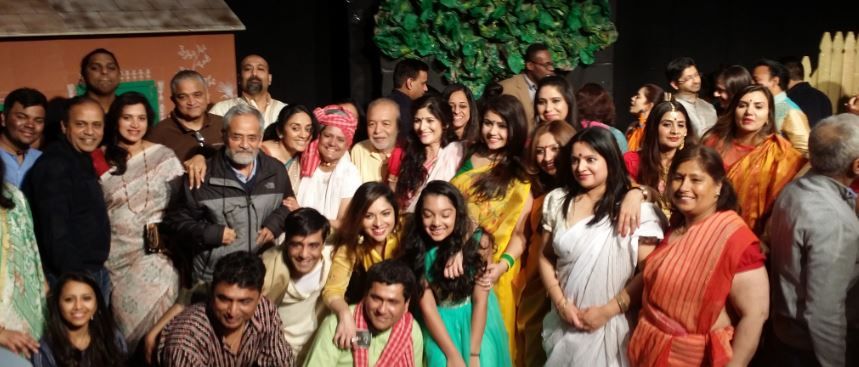GEETHA PATIL

BOSTON: The Stage Ensemble Theater Unit (SETU) OF Boston is presenting its eight shows of a socially relevant drama, based on the Bengali novel Devdas by Sarat Chandra Chatterjee, portraying the patriarchal Indian society of the early 20TH century and a romantic tragedy of the imperfect central characters of the story in this Spring season.
This English tragic love drama was staged at the Mosesian Center for the Arts, Watertown, Massachusetts, April 26, 27 and 28 and this will be repeated at the same theater May 17, 18 and 19.
Devdas is one of the most popular works of Indian literature, staying relevant for many generations as it narrates the love in separation (viraha), relating Paru/Parvati’s longing for the absent Devadas and entry of Chandramukhi and her love for Devdas. Devdas is not just a simple story of a love affair, but a lifelong struggle that fails to bring happiness to the central characters involved in the love triangle.
Audiences relate to these characters because they represent our sense of love and life, pain and pleasure, the cause and effect of male-female relationship, our strong bond to the society into which we are born, and the lifelong dilemmas that we face within social boundaries. This play appeals to all, especially Indians, because the man who self-destructs himself for a girl is so Indian. Devdas dramatizes the tragic inability of tradition and modernity to achieve balance. Their messages touch our souls and awakens our empathy for them.
Subrata Das did a wonderful job as playwright and director along with his dedicated crew who worked untiringly put this play together. Some timeless music and beautiful dances not only blended right into the story but also added a spirit to the story. Different artists performed the same central characters on different days and exhibited their talents for much appreciation. Sridhar Pola and Bhavesh Sharma portrayed the conflict, drama, love, anguish and purgative of Devdas.

Shamita Behl and Sumalita Bhuyan presented themselves as Paru with true emotions and precise dialogues. In Chandramukhi’s role, Saimanti Das and Sugandha Gopal exuded simplicity and grace in typical Bengali sarees and gave an added glamor in their ornate lehengas and dupattas along with exquisite jewelry befitting a courtesan in Bengal during the pre-Independence era.
Raj Pola, Vasu Jetly, and Ishaan Naik as young Devdas and Shefali Bakre, Isabel Rana, and Arshia Sharma as young Parvati justified their roles by adding emotions and smiles to their characters. Parul Kumar and Kumkum Pareek Malik as Thakuma (grandmother) complemented grace to the character by their natural acting skills.
For more information about their upcoming plays and show dates, visit www.setu.us







